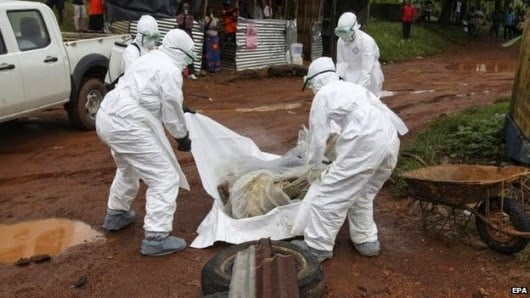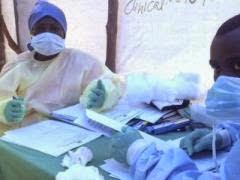
Ghana has not recorded any Ebola case after four suspected instances at various parts of the country at the weekend proved negative.
Tests at the Noguchi Memorial Institute for Medical Research (NMIMR) proved that none of the suspected cases at Nsawam in the Eastern region, Bawku in the Upper East region and Tamale in the Northern region was Ebola.
According to the Minister of Health, Dr Kwaku Agyeman Mensah, all four cases which were sent to Noguchi at the weekend have proved negative.
So far 37 suspected cases have been evaluated in Ghana since the outbreak of the disease in some West African countries and they have all proved to be negative.
Nearly 1,000 people have died and 1,800 have become infected in some West African states.
The Ebola outbreak – the worst ever – is prevalent in Liberia, Sierra Leone and Guinea, but has spread to other countries such as Nigeria in recent months.
The Ebola virus is transmitted among humans through bodily fluids.
In Ghana at the weekend, there was panic following news of the suspected cases in some parts of the country.
Three persons had reported at the Nsawam Government Hospital with symptoms of the disease.
They were said to be a 16-year-old girl, a 56-year-old man and a 53-year-old driver, all of whom reported at the hospital with blood in their urine.
The driver, who reported with a fever, however, had blood in his faeces.
The Medical Superintendent of the Nsawam Government Hospital, Dr Kofi Ablorh, told the Daily Graphic that out of the three patients, only one was isolated for further tests and observations.
He said the other two did not have a history that supported the likelihood of an Ebola infection which would necessitate their being set apart.
In another development, a Burkinabe was suspected to have died of Ebola on arrival at the Bawku Presbyterian Hospital last Friday.
An inter-Ministerial committee on Ebola held a closed door meeting Monday morning to institute strategies to fight the disease should it be recorded in Ghana.
Dr Mensah said government has resolved to complete three isolation centres in the country in two weeks and improve medical screening at entry points.
He advised people to wash their hands regularly with soap, avoid eating fruit bats, dead bush meat and asked people to alert District Health Authorities on returnees from affected countries who would in turn interview and do an observation to be sure they are not displaying symptoms of the disease.
The Health Minister said they had reviewed the work done so far on preparations to fight the disease and were convinced that the country’s surveillance system had been strengthened.
He said his outfit will now focus on ensuring that front line workers are trained and well equipped and that all isolation and treatment centres are ready within two weeks.
Soruce: graphicgh











